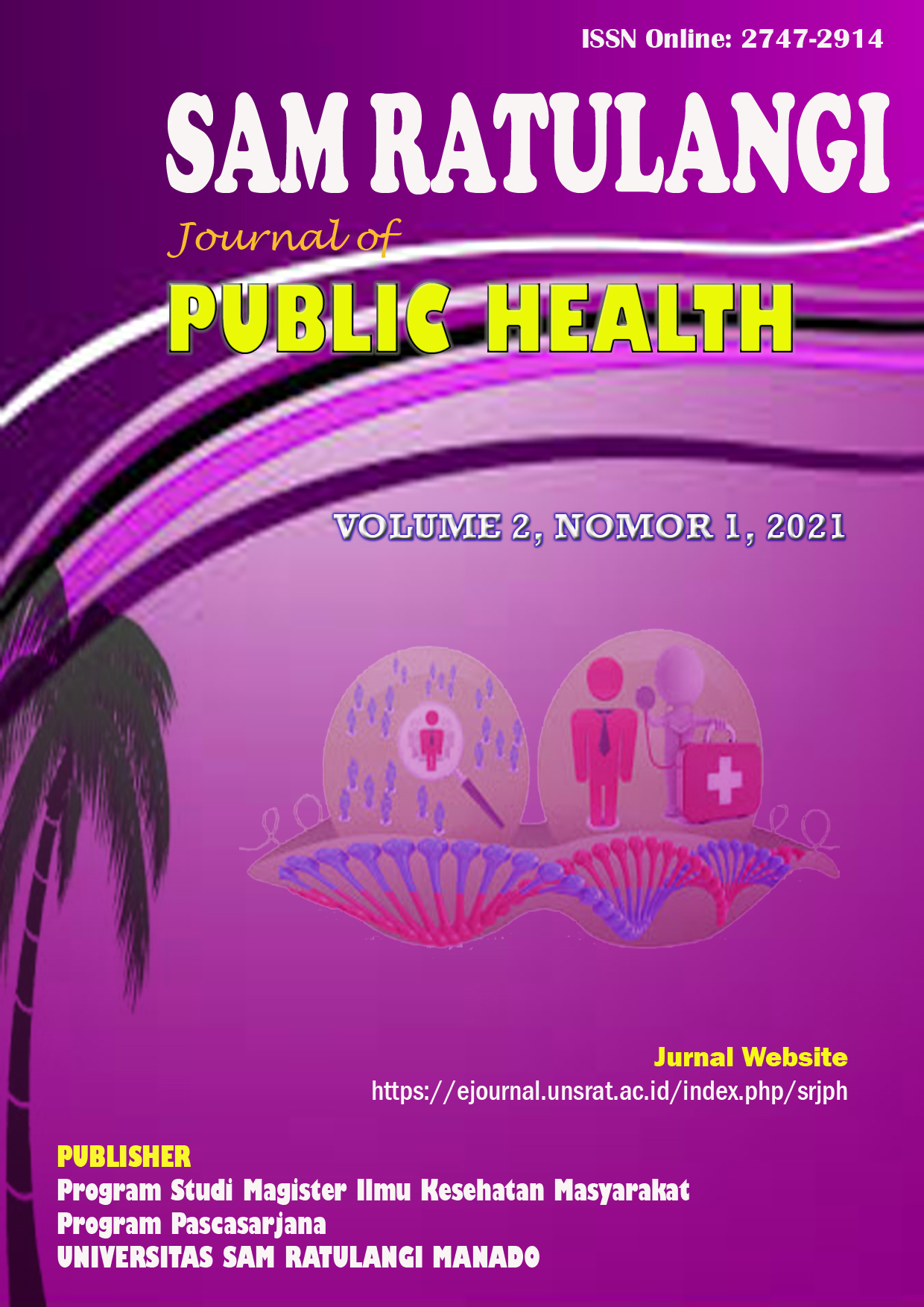Evaluasi Pelaksanaan Program Indonesia Sehat Pendekatan Keluarga di Wilayah Kerja Puskesmas Kwoor Kabupaten Tambrauw Papua Barat
DOI:
https://doi.org/10.35801/srjoph.v2i1.34450Keywords:
Program evaluation, Public health center, West Papua, mixed method researchAbstract
Background: The Healthy Indonesia Program with a Family Approach (PIS-PK) is one of the Puskesmas' efforts to increase target coverage and increase community access. PIS-PK is implemented based on 12 existing indicators. However, the implementation of PIS-PK has not been maximized and various problems are still found, including in the Tabrauw Regency, West Papua. The purpose of this study is to evaluate PIS-PK in the working area of the Kwoor Health Center, Tambrauw Regency, West Papua in 2020. Methode: The method used in this research is the mixed method. The research was carried out in the working area of the Kwoor Health Center, Tambrauw Regency, West Papua in 2020. The focus of this research is on policy factors, human resources and funds, infrastructure, the process of recording and data collection and the implementation of PIS-PK. This study involved 3 informants and 30 respondents. Informants obtained data based on interview guidelines through in-depth interviews. Respondent data obtained through questionnaires. Data analysis using content analysis method (qualitative) and univariate analysis (quantitative). Result: The results of this study indicate that the policy in implementing PIS-PK at the Kwoor Health Center has been implemented but still has shortcomings in determining the implementing team at the puskesmas level and there is no PIS-PK roadmap in Tambrauw Regency. Human resources and funds in the implementation of PIS-PK at the Kwoor Health Center are available but are still inadequate. The infrastructure facilities in the implementation of PIS-PK at the Kwoor Health Center are still not optimal because they are constrained by the RKA and ASPAK filling. The process of recording and collecting family health data in the implementation of PIS-PK at the Kwoor Health Center has not been carried out properly due to lack of manpower, funds, and unstable network constraints. Most of the 12 PIS-PK indicators have been implemented, but special attention needs to be paid to the indicators that no family has access to clean water facilities, families who are members of JK, family members who do not smoke, families who take family planning, and give birth in health facilities whose implementation still low. Conclusion: The conclusion of this study is that the implementation of PIS-PK in the working area of the Kwoor Health Center, Tambrauw Regency, West Papua in 2020 has not gone well so that efforts are needed to improve the implementation of PIS-PK.
References
Achmadi, U.F., 2008. Manajemen Penyakit Berbasis Wilayah. J. Kesehat. Masy. Nas. 3, 147-153. doi:10.9774/jmk.13.1.61-75
Agustina S. C. 2018 Implementation Of Health Indonesia With Family approach (PIS-PK) Using Contract In Kulon Progo District 2018. Jurnal Kebijakan Kesehatan JKKi
Agustino. 2014. Dasar- Dasar Kebijakan Publik. Bandung: Alfabeta
Aitken, P., Leggat, P. A., Robertson, A. G., Harley, H., Speare, R., & Leclercq, M. G. (2011). Education and training of Australian disaster medical assistance team members: results of a national survey. Prehospital and disaster medicine, 26(1), 41.
Asri, A. C., & Budiono, I. 2019. Pelaksanaan Program Indonesia Sehat dengan Pendekatan Keluarga di Puskesmas. HIGEIA (Journal of Public Health Research and Development), 3(4), 556-567.
Ayuningtyas. 2014. Kebijakan kesehatan prinsip dan praktik. Jakarta: Raja Grafindo Persada

